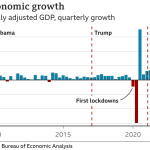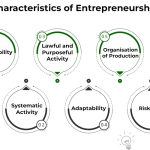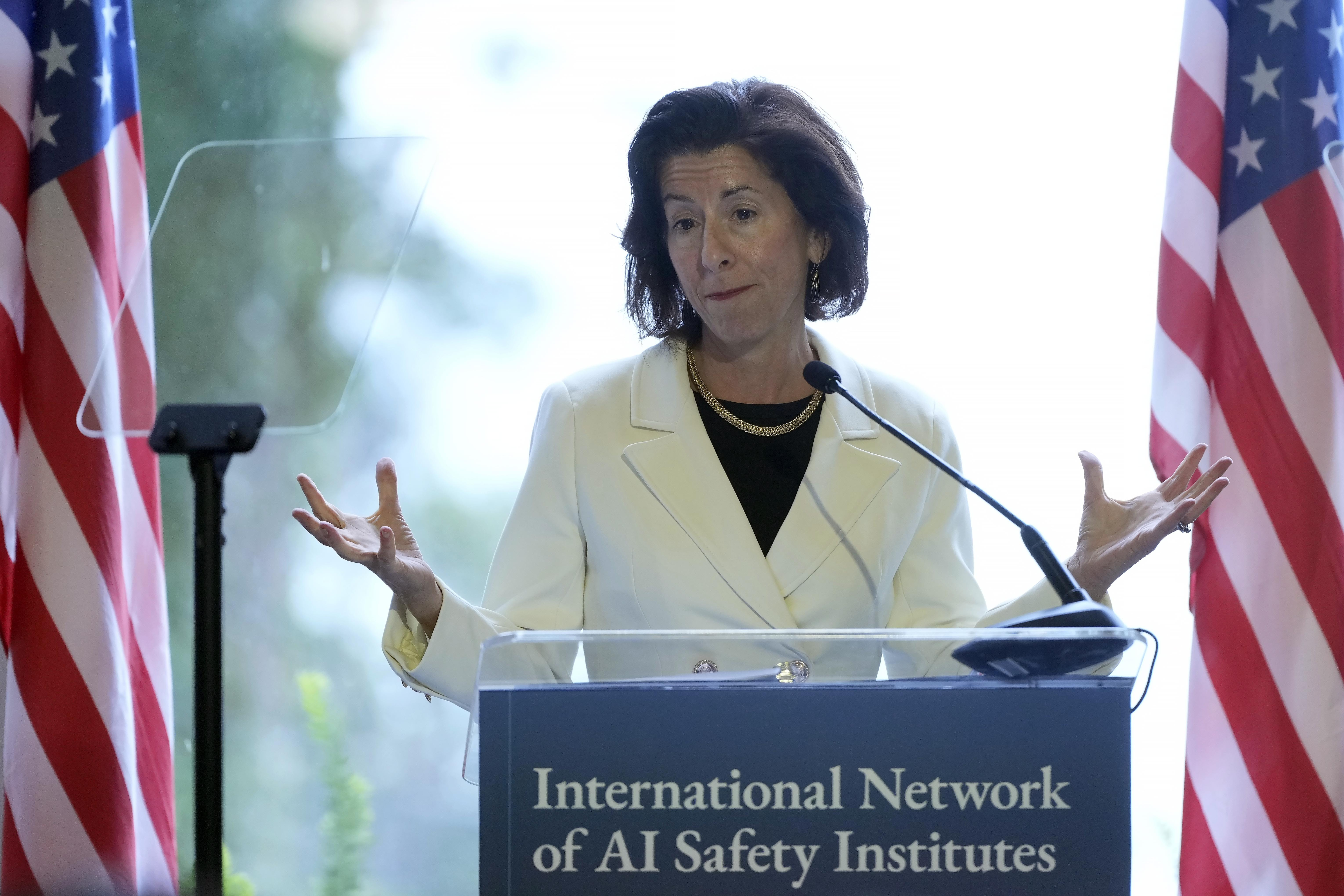Gina Raimondo, a trailblazer in American politics, has made significant strides in shaping US economic policy during her tenure as the U.S. Commerce Secretary. Committed to political change, Raimondo has championed critical issues such as raising the minimum wage and addressing supply chain issues that have plagued the nation, especially during the pandemic. This proactive approach, rooted in her experiences as the governor of Rhode Island, reflects her drive to create equitable opportunities for all citizens. Under the Biden administration, she has played an instrumental role in implementing policies that aim to boost the economy and improve the workforce. By focusing on collaboration with international partners and emphasizing the need for fiscal responsibility, Raimondo is redefining the landscape of American governance and economic strategy.
Gina Raimondo stands at the forefront of transformative political initiatives in the United States, reflecting a commitment to enhance economic frameworks through progressive policies. As a prominent figure in the Biden administration, she advocates for wage increases and effective responses to critical supply chain disruptions. Her leadership experience as Rhode Island’s governor laid a solid foundation for her current role in shaping economic reforms, ensuring that the needs of everyday Americans are prioritized. By forging partnerships domestically and internationally, she seeks to bolster the economy while ensuring inclusivity in job creation. With an emphasis on reformative measures, Raimondo’s approach is redefining the dynamics of US governance and providing a blueprint for future leaders.
Gina Raimondo’s Approach to Political Change
Gina Raimondo’s approach to political change is characterized by her belief that progress often necessitates disruption. As she stated during a recent forum, sometimes positive change comes at a cost, which may mean ‘breaking things’ in order to build something better. Her tenure as the former U.S. Commerce Secretary showcases her commitment to transforming systems, illustrated by her advocacy for raising the minimum wage and making community college tuition-free. These initiatives reflect her focus on equity and opportunity, as she aims to benefit everyday Americans rather than maintaining the status quo.
Moreover, Raimondo’s willingness to cut regulations by 30% in Rhode Island highlights her goal of creating a more favorable economic environment. By simplifying bureaucracy, she aimed to stimulate growth and attract businesses, emphasizing a proactive stance in reshaping the economy. This philosophy dovetails with her observation that political change should prioritize the needs of the ‘little guy’—a mantra she adopted from her father—and it manifests in her relentless pursuit of policies designed to uplift vulnerable populations while ensuring sustainable economic growth.
The Impact of Biden Administration on U.S. Economic Policy
The Biden administration has made significant strides in reshaping U.S. economic policy, with Gina Raimondo playing a crucial role in this transformation. One of the administration’s key initiatives, the CHIPs and Science Act, aims to reduce dependency on foreign semiconductor manufacturing, particularly in light of the vulnerabilities exposed by the pandemic-induced supply chain crisis. Under Raimondo’s leadership, the administration has fostered partnerships with nations in Southeast Asia to bolster domestic production capabilities, illustrating a shift toward a more resilient economy that prioritizes national security over unchecked globalization.
Additionally, the Biden administration’s response to supply chain disruptions has redefined strategies for U.S. economic policy. By implementing measures that prioritize domestic manufacturing of essential goods, Raimondo has ensured that the U.S. economy is not solely reliant on international markets, particularly from nations like China that may not adhere to fair trade practices. This proactive stance is critical in addressing not only economic challenges but also broader concerns regarding national security, showcasing the intricate balance between economic growth and strategic resource management.
Raimondo’s Legacy in the Fight for Minimum Wage
Gina Raimondo’s commitment to raising the minimum wage reflects her deep understanding of the economic pressures faced by low-income workers. During her leadership in Rhode Island, she made headlines for implementing policies designed to elevate the standard of living for the working class, equating economic prosperity with wage equity. By advocating for a higher minimum wage, she ensured that laborers could sustain their families and contribute positively to the economy, demonstrating a critical link between fair wages and broader economic growth.
Her efforts align with a nationwide conversation about income inequality and the necessity for increased wages amid rising living costs. Raimondo’s push for higher wages resonates not just on local levels but plays a pivotal role in the national dialogue about economic policy. As she continues to influence policymaking on a larger stage, her legacy may well be defined by her unwavering effort to uplift the working class through legislative measures—ensuring that economic growth does not neglect the foundational workers who drive it.
Navigating Supply Chain Issues Under Biden
The Biden administration has faced unprecedented supply chain disruptions, a challenge that Gina Raimondo has adeptly navigated as the former U.S. Commerce Secretary. The onset of the COVID-19 pandemic unveiled critical vulnerabilities in supply chains, particularly for essential goods such as medical supplies and food products. Raimondo’s strategy involved analyzing intricate supply dynamics and implementing a collaborative approach with international partners to restore balance and reliability, a move that showcases her adeptness in crisis management within U.S. economic policy.
By focusing on comprehensive solutions that included building strong relationships with countries like Indonesia and the Philippines, Raimondo’s leadership has shifted the narrative around supply chains from mere dependency to strategic cooperation. Her proactive measures aimed at innovating domestic production not only address short-term shortages but also aim to fortify the U.S. economy against future vulnerabilities, reinforcing the administration’s commitment to a sustainable supply chain framework that supports long-term economic resilience.
Raimondo’s Vision for U.S. Competitiveness
Gina Raimondo envisions a competitive United States, a stance that has shaped her policies and initiatives throughout her political career. Her emphasis on innovation, especially in technology and manufacturing sectors, signifies the need for the U.S. to remain at the forefront of global competitiveness. By promoting initiatives like the CHIPs and Science Act, Raimondo aims to bolster the nation’s technological resilience, ensuring that the U.S. can produce critical components domestically, which is vital for both economic strength and national security.
Moreover, her vision encompasses increasing workforce participation and improving access to education and training. Raimondo understands that a competitive economy hinges not only on robust manufacturing capabilities but also on a skilled labor force. By advocating for community college tuition reform and childcare programs, she underscores her commitment to creating opportunities for all Americans to contribute to the economy, thereby fostering a more inclusive and competitive environment.
Evaluating the Success of the CHIPs and Science Act
The CHIPs and Science Act represents a landmark effort to revitalize U.S. leadership in semiconductor manufacturing, an area deemed critical for both technological advancement and national security. Gina Raimondo played an integral role in shaping this legislation, which aims to produce a quarter of the world’s leading-edge chips domestically by 2030. This ambitious target highlights a strategic shift towards self-reliance in key technologies, mitigating risks associated with supply chain dependencies, particularly on foreign manufacturers.
Raimondo’s defense of the act also emphasizes fiscal responsibility, showcasing how every dollar invested in the semiconductor industry is expected to yield significant private sector returns. By leveraging partnerships with private companies, the government not only seeks to enhance domestic production but also to foster innovation and competition within the industry. This approach reflects a broader understanding that robust economic policy should not only protect jobs but also stimulate entrepreneurship and growth within the tech sector.
Challenges of Bipartisanship in Economic Reform
Gina Raimondo recognizes the inherent challenges of achieving bipartisan support for expansive economic reforms. During her tenure in the Biden administration, she encountered significant hurdles, particularly within a closely divided Congress. Balancing differing viewpoints while pursuing policies focused on raising the minimum wage, improving infrastructure, and enhancing workforce participation necessitated strategic compromises—a testament to the complexities of contemporary American politics.
Despite these challenges, Raimondo remains committed to the principle that effective economic policy must address the needs of a diverse population. By advocating for programs such as childcare initiatives alongside traditional economic measures, she has highlighted the importance of versatile approaches to labor market challenges. As global economic pressures mount, finding common ground in Congress will be essential to enacting meaningful reforms that foster sustainable growth and address pressing issues like inequality and job creation.
The Role of Social Programs in Economic Policy
Gina Raimondo’s assertion that social programs are essential components of economic policy unveils a progressive perspective on governance. By ensuring access to programs such as affordable childcare, she emphasizes that these initiatives are not merely social welfare but integral parts of a robust economic framework that supports workforce participation. Raimondo’s approach highlights the misconception that economic and social policies are separate entities; rather, they are deeply interwoven in creating sustainable employment opportunities and economic stability.
Critics may view the inclusion of social programs in economic strategy as a deviation from fiscal discipline; however, Raimondo argues that these programs act as strategic investments in the labor market. By enabling more individuals, especially women, to join or re-enter the workforce, she asserts that such programs ultimately drive economic productivity and growth. This holistic view stresses the need for policies that recognize the interconnectedness of social well-being and economic prosperity, fostering a labor market that is responsive to the needs of all community members.
The Future of U.S. Economic Policy with Raimondo’s Insights
As the future of U.S. economic policy unfolds, Gina Raimondo’s insights and experiences are likely to significantly influence the direction of crucial reforms. Her focus on making economic opportunities equitable and her historical understanding of the struggles faced by everyday Americans will serve as guiding principles in evolving economic strategies. Reflecting on her tenure, her perspective underscores that navigating challenges requires not only policy changes but also compassion and an unwavering commitment to the American Dream.
Furthermore, as economic challenges continue to evolve, the lessons learned during the pandemic will be vital in shaping a sustainable future. Raimondo’s emphasis on collaboration, both domestically and with international partners, aligns with the broader recognition that global interdependence necessitates cooperative strategies. As proposals for infrastructure investments, wage reforms, and technology initiatives emerge, Raimondo’s approach will likely advocate for inclusivity and resilience, focusing on fostering a stronger, more integrated U.S. economy.
Frequently Asked Questions
What are Gina Raimondo’s contributions to U.S. economic policy during her time as Commerce Secretary?
As U.S. Commerce Secretary, Gina Raimondo played a pivotal role in shaping U.S. economic policy by addressing supply chain issues, particularly during the pandemic. She helped implement strategies to strengthen international relationships under the Biden administration, notably through the CHIPs and Science Act, aimed at increasing domestic semiconductor production. Raimondo’s focus was on ensuring economic competitiveness while maintaining fairness for everyday Americans.
How has Gina Raimondo impacted the minimum wage debate in the U.S.?
Gina Raimondo has been a strong advocate for raising the minimum wage, particularly during her tenure as governor of Rhode Island. She successfully implemented annual tax cuts while simultaneously increasing the minimum wage, illustrating her commitment to improving economic conditions for workers. Raimondo’s approach emphasizes the importance of fair wages as part of broader U.S. economic policy.
What strategies did Gina Raimondo employ to address supply chain issues as U.S. Commerce Secretary?
To tackle supply chain issues exacerbated by COVID-19, Gina Raimondo initiated a comprehensive understanding of critical supply chain complexities. Under President Biden’s leadership, she advocated for building international relationships, particularly with Southeast Asia, to secure essential goods like pharmaceuticals and semiconductors, recognizing the necessity for America to collaborate globally.
How did Gina Raimondo’s policies reflect the Biden administration’s goals?
Gina Raimondo’s policies aligned closely with the Biden administration’s goals of economic recovery and competitiveness. She championed the Infrastructure Investment and Jobs Act and the CHIPs and Science Act, aiming to enhance U.S. manufacturing capabilities and innovation. Her focus on equitable economic policies and workforce participation reflects the administration’s broader objectives.
Why does Gina Raimondo emphasize the need for fairness in economic policy?
Gina Raimondo emphasizes fairness in economic policy due to her background and personal experiences that motivate her involvement in politics. Growing up in a family that valued hard work, she understands the challenges many Americans face. Her commitment to ensuring that economic changes benefit all citizens reflects her belief that political change should not come at the expense of people’s livelihoods.
How does Gina Raimondo’s background influence her perspective on U.S. economic policy?
Gina Raimondo’s background as the granddaughter of immigrants instilled in her a strong work ethic and a deep understanding of economic struggles. Her experiences motivated her entry into politics, where she now advocates for policies that prioritize the needs of working-class Americans, making her perspective on U.S. economic policy informed by both personal and professional insights.
What mistakes does Gina Raimondo acknowledge from her time in the Biden administration?
Gina Raimondo acknowledges that while significant achievements were made during her tenure, there were mistakes, including possibly compromising too much in negotiations. She emphasizes the challenges of governance in a closely divided Senate and reflects on the importance of balancing bold economic initiatives with practical political realities.
What role does Gina Raimondo believe social programs play in economic recovery?
Gina Raimondo argues that social programs, particularly those addressing childcare, are essential for economic recovery. She believes that without creating supportive environments for workers, such as accessible childcare, companies cannot effectively hire and retain a diverse workforce. Thus, she views these programs as critical labor market initiatives rather than merely social expenditures.
| Key Topics | Details |
|---|---|
| Gina Raimondo’s Approach to Change | Advocates breaking norms to create positive change while ensuring no harm is done. |
| Achievements as Rhode Island Governor | Implemented tax cuts, raised minimum wage, made community college tuition-free, and reduced state regulations by 30%. |
| Handling Supply Chain Issues | Focused on supply chain complexity during COVID-19, fostering international relationships to address shortages. |
| CHIPs and Science Act | Aimed at increasing domestic semiconductor production for national security, targeting 25% by 2030. |
| Fiscal Responsibility | Ensured $10 in private-sector investment for every public dollar spent. |
| Challenges Faced | Acknowledged mistakes and compromises during her tenure, especially in a narrowly divided Congress. |
| Defending Biden’s Stimulus Act | Justified the size of the stimulus to counter unemployment during the pandemic despite inflation concerns. |
Summary
Gina Raimondo emphasizes the importance of making impactful changes while considering the well-being of citizens. Throughout her career, she has demonstrated that transformative policies do not have to come at the expense of fairness or opportunity. Her actions as both Rhode Island’s governor and U.S. Commerce Secretary reflect a commitment to economic progress and responsible governance, making her a pivotal figure in addressing modern challenges.









